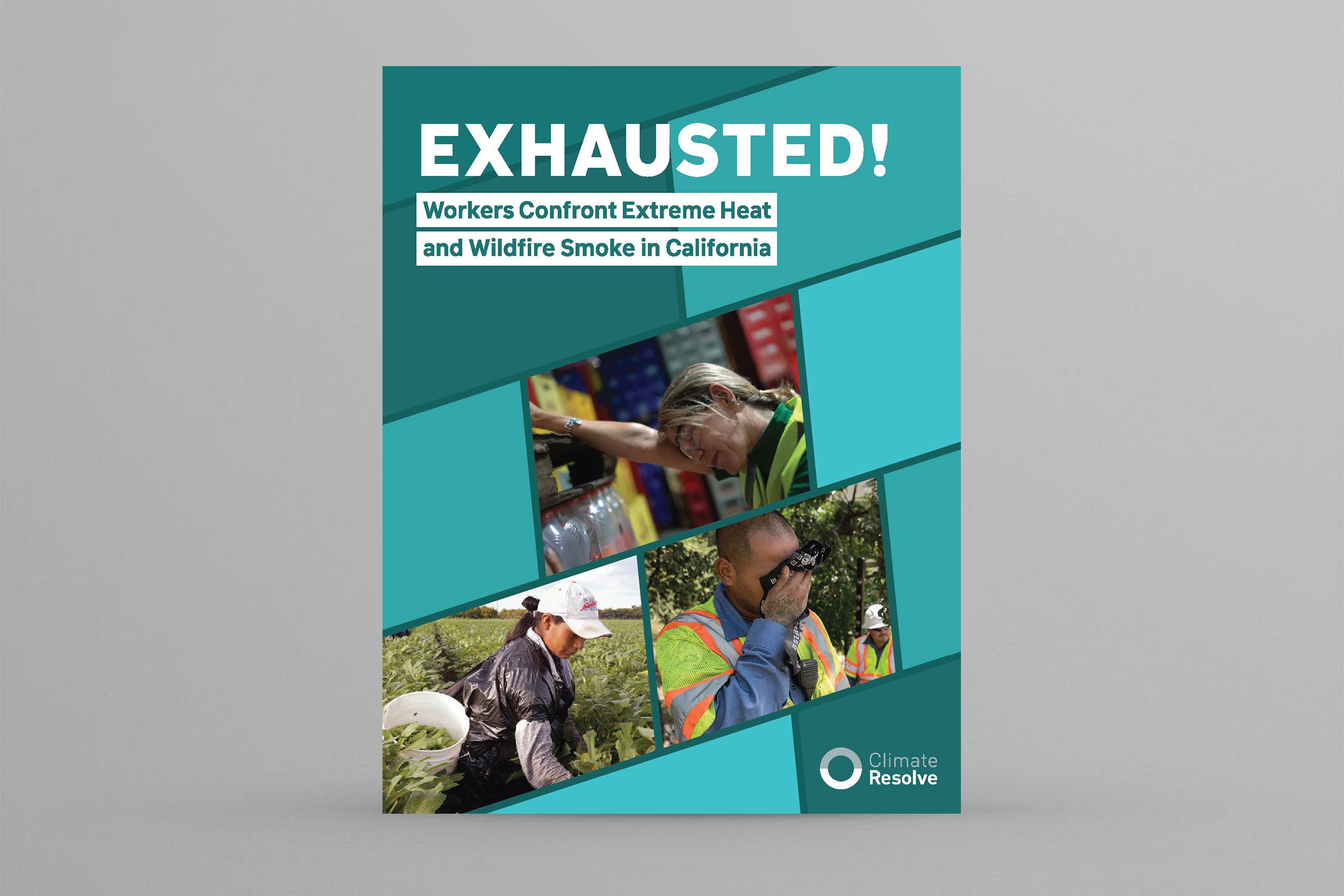Resilience Building in Action
Protecting California’s Essential Workers from the Health Impacts of Climate Change
A groundbreaking, recently released report developed through the California Resilience Partnership explores the health vulnerabilities of essential workers in light of climate change, and concludes with 18 concrete recommendations to reduce these risks.
Indoor and outdoor workers are essential to California’s economy. In fact, our food system nationwide depends on California’s workers: over one-third of America’s vegetables, and two-thirds of fruits and nuts, are harvested by farmworkers in California. Other California workers support the United States’ supply chain at warehouses and ports.
While workers form the backbone of our supply chains and economy, as underlined in the Los Angeles County Climate Vulnerability Assessment, essential workers remain particularly vulnerable to climate threats such as extreme heat and wildfires—which are increasing in both intensity and frequency. Over 25% of workers will soon labor under extremely high temperatures and increasingly severe wildfires. Underlying stresses further exacerbate these climate risks. For example, over 6% of California workers are undocumented and therefore face barriers in accessing healthcare and government assistance programs. Workers’ reliance on hourly compensation incentivizes more work during climate events, despite limited healthcare access. Additional protections are needed to support the health and safety of workers who support essential functions in our communities amid growing climate risks.
Through the California Resilience Partnership (CRP), RCC partner Climate Resolve developed a report, Exhausted!—Workers Confront Extreme Heat and Wildfire Smoke in California, with recommendations to protect essential workers from climate impacts. Climate Resolve conducted extensive policy and data-driven research, along with stakeholder interviews with key experts including labor advocacy organizations, State agency staff, academic experts, and of course, workers themselves. RCC provided technical assistance and collaborated closely with the team across all stages of this effort, from research to engagement to recommendation development to report finalization and advocacy. Through the CRP network, RCC also provided a platform for Climate Resolve to share updates and collaborate further with statewide stakeholders and partners.
The report specifies 18 concrete recommendations around existing and potential new regulations and policies protecting both indoor and outdoor workers. Report recommendations range from stronger enforcement of existing regulations to the creation of new insurance products designed to protect workers. Following the report’s release, Climate Resolve and RCC are collaborating on communications and stakeholder education efforts to amplify recommendations, and will be leveraging RCC’s network to brief policymakers.


